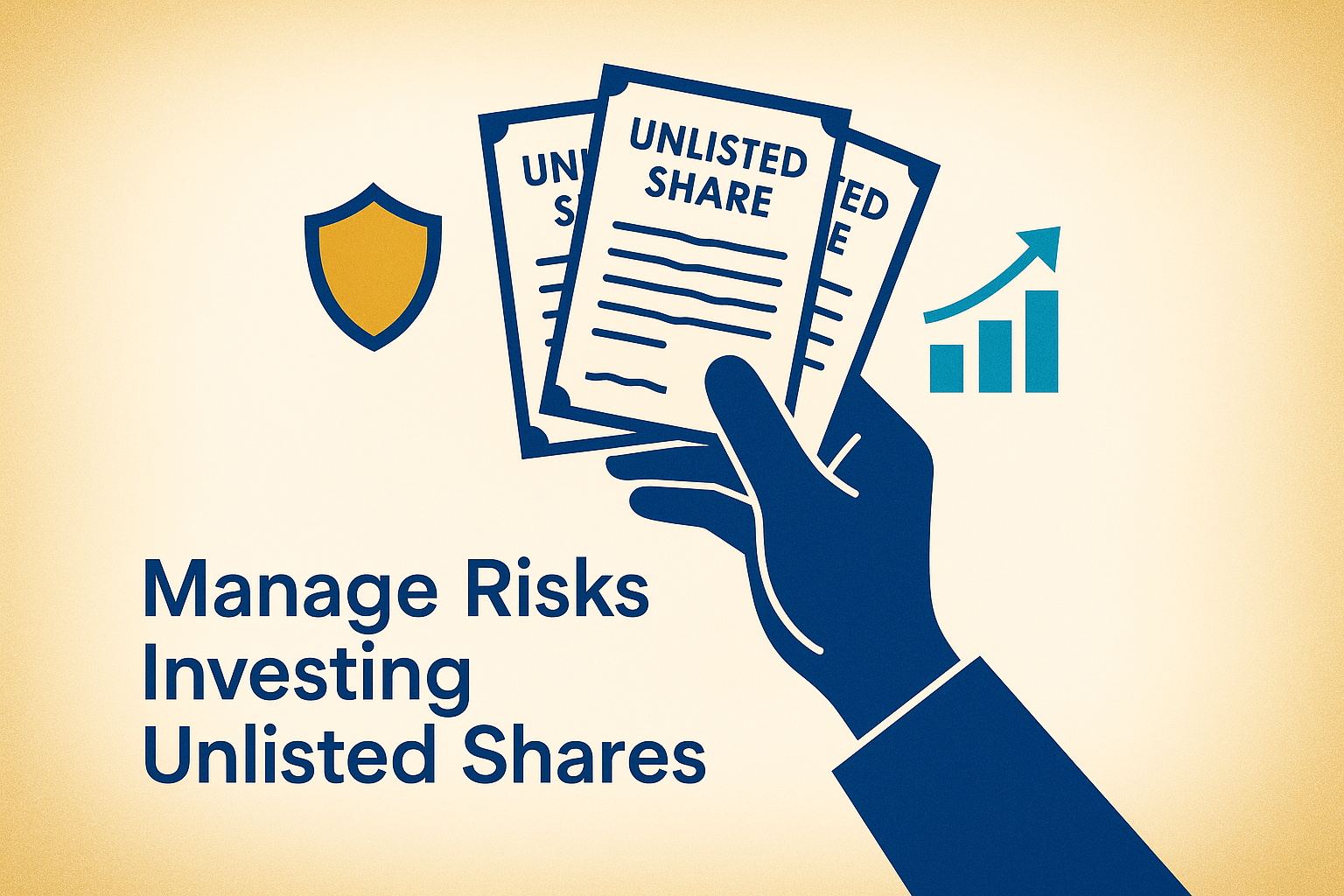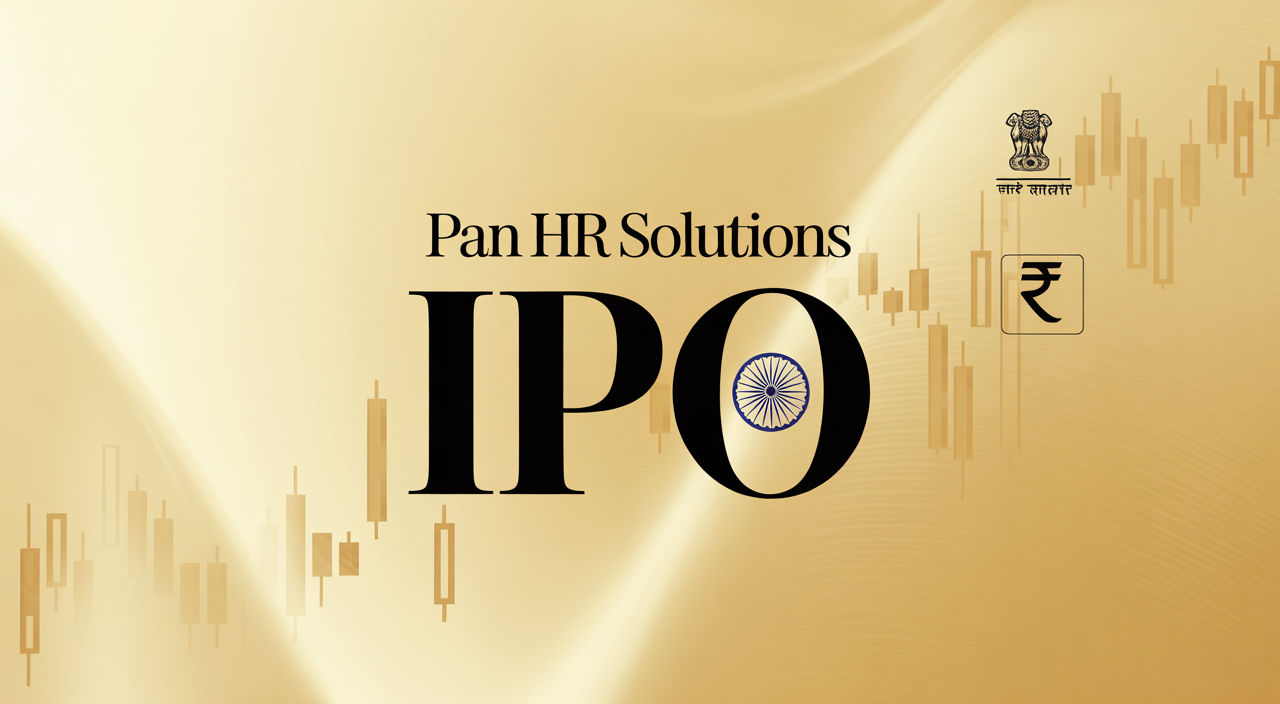Investing in unlisted shares can seem incredibly exciting, right? You get a chance to be part of a company’s growth story even before it goes public. Many investors dream of finding the next big success like a Flipkart or a Zomato before their IPO. But this world of early-stage investing also comes with its own set of challenges and risks. It’s important to understand these risks, especially when you’re investing in unlisted shares online, to protect your hard-earned money.
Unlisted shares are essentially stocks of companies that aren’t yet traded on a public stock exchange like the NSE or BSE. They’re also known as private equity or pre-IPO shares. While the potential for high returns is a big draw, it’s crucial to know how to navigate this market safely. So, let’s dive into the unique risks involved and talk about how you can handle them smartly.
Understanding the Unique Risks of Private Market Investments
When you invest in a company before its IPO, you’re entering a different investment landscape. This area comes with risks quite different from the listed share market.

- Illiquidity Risk: This is perhaps the biggest challenge. Think of it like trying to sell a unique piece of art – it takes time and you might not find a buyer immediately, unlike selling a popular stock. You can’t easily buy or sell unlisted shares whenever you want; there isn’t an open market with many buyers and sellers. Finding a buyer can be difficult and take a long time, meaning your money might be tied up for many years and impacting your overall financial planning.
- Valuation Risk: How do you know if you’re paying a fair price? For listed companies, their share price is determined by the market every day. But for unlisted companies, valuation is more complex. It’s often based on internal assessments, expert opinions, and recent funding rounds. These valuations might be too optimistic or not truly reflect the company’s worth, making it tricky to judge if you’re getting a good deal.
- Information Asymmetry: Public companies must share a lot of information with investors regularly, including financial reports, business updates, and other important news. Unlisted companies, however, have no such obligation. It’s like trying to make a big decision with only half the puzzle pieces. You might have limited access to key financial data or operational details, and this lack of transparency makes it harder to make truly informed decisions.
- Business Failure Risk: Many startups and early-stage companies don’t succeed. Imagine you’ve put your hard-earned money into a promising new app company. If that app doesn’t catch on, and the company folds, your investment could disappear entirely. They might struggle to find customers, face strong competition, or simply run out of funding. This risk is much higher than investing in established public companies, so be aware.
- Regulatory and Legal Risks: The rules for unlisted shares are quite different from listed ones. While SEBI oversees some aspects, the level of investor protection is often lower. Changes in government policies, taxation rules, or industry regulations can also affect your investment value unexpectedly.
Online-Specific Risks: What to Watch Out For
The rise of online platforms has made investing in unlisted shares online more accessible. But this convenience also brings some digital-age risks.
- Platform Legitimacy: Not all online platforms aren’t created equal. Some might not have proper licenses or a good track record. It’s vital to ensure the platform you use is genuine and regulated by appropriate authorities. A fraudulent platform could disappear with your money.
- Cybersecurity & Data Privacy: Online transactions mean sharing personal and financial details. A platform with weak security measures could expose your data to cybercriminals. Ensure the platform uses strong encryption and other security protocols.
- Lack of Personalized Advice: While online platforms offer a lot of information, they usually don’t provide tailored financial advice. Relying solely on the information presented on a website, without understanding your own financial situation and risk tolerance, can be risky.
- Digital Fraud & Scams: The online space is ripe for scams. Be wary of opportunities promising “guaranteed high returns” or putting immense pressure on you to invest quickly. Always check the legitimacy of the offering and the company behind it.
Navigating Your Journey: Investing in Unlisted Shares Online Responsibly
Even with these risks, the unlisted market can offer some truly excellent opportunities if you approach it smartly. Here are some actionable strategies we believe will help you manage risks when investing in unlisted shares online.

1. Do Your Homework (Due Diligence)
This is the most crucial step – think of it as your deep-dive investigation. Never invest based on hype or recommendations alone. You’ll need to investigate both the company and the platform thoroughly.
On the Company:
- Understand the Business: What does the company do? What problem does it solve? Is there a large market for its products or services? Who are its competitors?
- Review the Management Team: Who are the founders and key executives? Do they have the relevant experience and a good track record? Strong leadership is vital for early-stage companies.
- Analyze Financials (if available): Look at their revenue, expenses, and profitability. Even if limited, try to understand their growth trends and cash burn rate. Are they raising money frequently, and why?
- Legal and Regulatory Checks: Are there any pending lawsuits or regulatory issues? Ensure the company is compliant with all local laws and regulations.
On the Online Platform/Broker:
- Verify Credentials and Licenses: Check if the platform is registered with SEBI or other relevant financial regulators in India. Legitimate platforms should be transparent about their licenses.
- Check Their Track Record: How long has the platform been operating? What is their reputation? Look for reviews from other investors and any news articles about them.
- Understand the Fee Structure: Be clear about all costs. This includes brokerage, transaction fees, and any exit charges. Hidden fees can eat into your returns.
- Security Measures: Does the platform use strong data encryption? Do they offer multi-factor authentication (MFA) to protect your account? Good cybersecurity, frankly, is non-negotiable.
- Customer Support: How responsive is their customer support? What is their process for handling grievances? You want to know you can get help if something goes wrong. For more details on choosing wisely, consider our guide on choosing the right investment platform.
2. Diversify Your Portfolio
Never put all your eggs in one basket. This rule is even more critical for unlisted shares. Invest small amounts across several different companies and sectors. This way, if one investment doesn’t perform well, your entire portfolio won’t suffer a huge loss. Unlisted shares, frankly, should only form a small portion of your overall investment portfolio, perhaps no more than 5-10% of your total investable capital.
3. Understand Exit Strategies and Liquidity Options
Since illiquidity is a major risk, think about your exit plan before you invest. How do you expect to sell your shares? The most common exit routes are an IPO, an acquisition by a larger company, or a secondary sale to another investor. These events can actually take many years to happen. Be prepared for a long investment horizon, often 5-10 years or even more. Some platforms might offer secondary trading, but this market is still developing and may not always provide the liquidity you need. Learning about various asset classes can help you make a balanced choice; for instance, you might want to read about investing in startup equity.
4. Set Realistic Expectations
The stories of massive returns from early-stage investments are often highlighted, but many more companies don’t deliver such results. Understand that unlisted shares are high-risk, high-reward investments. You should only ever invest money you can truly afford to lose entirely without impacting your financial goals. Avoid making emotional decisions or succumbing to “fear of missing out” (FOMO).
5. Seek Professional Guidance
If you’re new to this space or dealing with a significant investment, consider consulting a financial advisor. An expert specializing in private markets can offer invaluable insights, help with due diligence, and assess if such investments fit your financial goals and risk tolerance. They can also help you understand the complex terms and conditions often associated with private share investments.
Regulatory Frameworks and Investor Protection in India
In India, SEBI (Securities and Exchange Board of India) has guidelines for public offerings and some private placements. However, the private market for unlisted shares has less direct regulatory oversight compared to the highly regulated public stock markets. This means investor protection mechanisms aren’t as robust. Always be vigilant for common red flags, such as unsolicited calls, promises of fixed or guaranteed returns, or pressure to invest quickly without proper documentation. These are often clear signs of potential scams. Always deal with registered intermediaries and ensure all transactions are routed through official banking channels.
Is Investing in Unlisted Shares Online Right For You?
Investing in unlisted shares online can be a powerful way to generate wealth. But, it really demands patience, thorough research, and a clear understanding of the risks involved. It’s suitable for investors who have a high-risk tolerance, a long-term investment horizon, and are willing to dedicate time to robust due diligence.
Before you dive in, honestly assess your financial goals and comfort level with risk. Equip yourself with knowledge, conduct thorough due diligence on both the company and the platform, and always invest with calculated prudence. Taking this careful approach will truly help you navigate the exciting yet challenging world of unlisted shares effectively.










